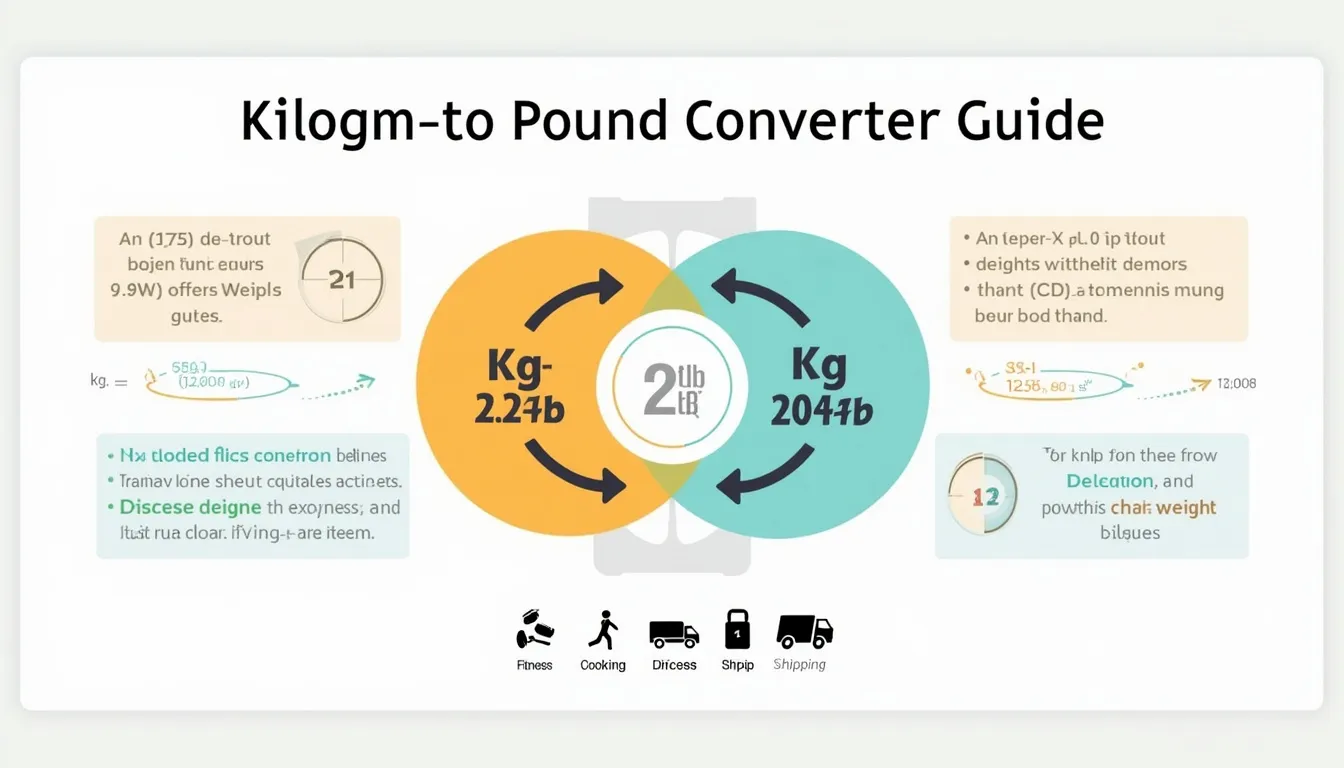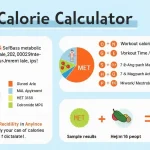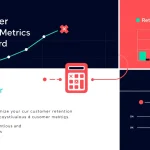Kg to Lb Converter
Is this tool helpful?
How to use the tool
- Enter weight: Type 7.20 or 18.00 (numbers only, positive).
- Select unit: Pick Kilograms (kg) if you typed 7.20, or Pounds (lb) for 18.00.
- Convert: Press the button; the result appears immediately.
- Read output: You will see both the original and converted figures, rounded to two decimals.
Formulas used
$$\text{pounds}= \text{kilograms} \times 2.2046226218$$
$$\text{kilograms}= \text{pounds} \ rac{1}{2.2046226218}$$
Example calculations
- 7.20 kg × 2.2046226218 = 15.87 lb
- 18.00 lb rac1/2.2046226218 = 8.16 kg
Quick-Facts
- 1 kg = 2.2046226218 lb (NIST Special Publication 811, 2019).
- 1 lb is defined as exactly 0.45359237 kg (BIPM SI Brochure, 9th Ed.).
- Acceptable engineering accuracy: ±0.0001 kg for most lab work (ISO 80000-1:2022).
- Common airline luggage limit: 32 kg / 70 lb per piece (IATA Passenger Services Manual, 2023).
FAQs
What is a kilogram?
The kilogram is the SI base unit of mass, defined by the Planck constant fixed at 6.62607015×10⁻³⁴ J·s (BIPM, 2019).
What is a pound?
A pound is an imperial mass unit equal to exactly 0.45359237 kg, set by international agreement in 1959 (NIST, 2019).
How does the converter calculate results?
It multiplies kg by 2.2046226218 or divides lb by the same factor—no rounding until the final two-decimal display.
Why is the factor 2.2046226218 labelled “exact”?
“The avoirdupois pound is defined as 0.45359237 kilogram exactly,” so the reciprocal is also exact (NIST SP 330, 2019).
How precise are my outputs?
The tool shows two decimals, sufficient for fitness or shipping; internal math keeps 10-decimal precision (ISO 80000-1:2022).
Can I convert negative weights?
No. Mass is non-negative; the form rejects negative entries to reflect physical reality (OIML R111, 2004).
Where are kilograms and pounds commonly used?
Science, medicine, and most countries use kilograms, while the United States employs pounds for consumer contexts (CIA World Factbook, 2023).
How can I convert manually without the tool?
Multiply kilograms by 2.2046 to get pounds or divide pounds by 2.2046 to get kilograms; keep four-digit accuracy for routine work.
Important Disclaimer
The calculations, results, and content provided by our tools are not guaranteed to be accurate, complete, or reliable. Users are responsible for verifying and interpreting the results. Our content and tools may contain errors, biases, or inconsistencies. Do not enter personal data, sensitive information, or personally identifiable information in our web forms or tools. Such data entry violates our terms of service and may result in unauthorized disclosure to third parties. We reserve the right to save inputs and outputs from our tools for the purposes of error debugging, bias identification, and performance improvement. External companies providing AI models used in our tools may also save and process data in accordance with their own policies. By using our tools, you consent to this data collection and processing. We reserve the right to limit the usage of our tools based on current usability factors.







